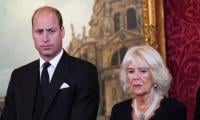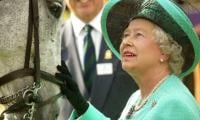ISLAMABAD: As the government remains indecisive about continuing the Sehat Sahulat Programme in federating areas, it has decided to withdraw exemptions for diagnostic kits, and cardiology products, including stents, catheters, and dialysis equipment.
This move will ultimately make healthcare more expensive, healthcare experts and industry representatives warned on Saturday.
Additionally, all exemptions for charitable hospitals and organisations have been revoked, raising treatment costs by at least 25-30%, according to officials from charitable organisations.
“The government has proposed the withdrawal of all general sales tax exemptions from the Sixth Schedule of the Sales Tax Act 1990, from serial numbers 112 and 120, which pertain to the healthcare sector. Consequently, the cost of all cardiac-related devices and diagnostic purchases will rise by a minimum of 25-30%, possibly more,” Masood Ahmed, Chairman of the Health Care Device Association of Pakistan (HDAP), told The News.
He deplored that exemptions for all charitable health institutions have been revoked, resulting in a 30-40% increase in expenses for hospitals and charitable labs.
“Charitable hospitals have limited budgets, and this increase in government taxation means they will be able to treat 30% fewer patients,” he claimed.
According to Masood Ahmed, the cost of diabetes home testing strips and lab tests for common infections, thalassemia, cancer, hepatitis, dengue, and blood bank services will rise significantly, placing a greater financial burden on the people of Pakistan.
A senior cardiologist and head of a cardiac-care facility, speaking to The News, said that the situation was still unclear, but there were indications that the government has decided to withdraw sales tax exemptions on angioplasty and angiography products, including stents, catheters, sheaths, wires, cardiac diagnostic equipment, guide wires, and contrast lines.
“Similarly, they have decided to impose a general sales tax on angiography accessories, pacemakers, and heart failure devices, including leads, connectors, and accessories. They have also proposed imposing a sales tax on electrophysiology products, including catheters, cables, connectors, laser systems, cardiac mapping systems, and other products,” the HDAP Chairman said, adding that this would result in at least a 25-30% increase in the cost of heart-related treatments.
Urging the government to rethink its decision, Masood Ahmed said, “Nowhere in the world do governments burden their healthcare sector and try to collect revenue from poor patients.”The cardiologist, who requested anonymity, claimed that hundreds of people suffer heart attacks daily in Pakistan, and about 75% of them require stenting to save their lives.
“Imposing sales tax on cardiac-care devices and products will make the cost of treatment unbearable for most Pakistanis,” he warned.
The government has also proposed imposing a sales tax on cardiac surgery products, including oxygenators, cannulas, prosthetic heart valves, luminal shunts, and artificial limbs and appliances.
“We have heard that they have also proposed imposing GST on cardiac angiography machines, echocardiography and ETT machines, gamma cameras for nuclear cardiology, left ventricular assist devices (LVAD), MRI-compatible cardiac monitors, infusion pumps, and many other devices and equipment,” he said, warning that this would ultimately increase patients’ suffering in Pakistan.
Philanthropist and Chief Executive Officer of the Indus Hospital and Health Network (IHHN) Prof. Dr. Abdul Bari Khan said the government has also withdrawn the sales tax exemptions for charitable organisations like Indus hospitals, which will increase the suffering of poor patients by reducing their ability to treat patients.
“At a time when donations are decreasing due to the economic meltdown, withdrawing exemptions from charitable healthcare organisations is ridiculous. We share the government’s burden of healthcare, but if they withdraw exemptions for us, it would be detrimental for both the government and the people of Pakistan,” he added.
“For instance, we now need to strive to collect Rs1.25 billion instead of Rs1 billion due to the withdrawal of sales tax exemptions, which is becoming harder each day. This will ultimately limit our ability to treat more people,” he maintained.
The owner of a large diagnostic services network in Pakistan claimed that the government had also withdrawn exemptions on diagnostic kits for HIV, hepatitis B and C, diabetes testing strips, kits for automatic cell separators for platelet collection, and many other kits, reagents, and equipment. He warned that this would significantly increase the cost of diagnostics in Pakistan.
“On one hand, the government is planning to screen 10 million Pakistanis for viral hepatitis and hundreds of thousands for HIV, dengue, malaria, TB, and other diseases. On the other hand, it is making diagnostics expensive, which is unimaginable,” the lab network owner said.
In a tweet on X, Mashwani says his brothers Azhar Mashwani and Professor Zahoor Mashwani had got back home
Court says in its order that vehicle of PTI lawyers would be allowed to enter jail from outer gate after 10-minute...
Naqvi says that consultations with scholars and religious leaders have begun to eradicate the menace of terrorism.
He says APC on the question of Balochistan will be negation of parliamentary procedure and will be slur on the...







